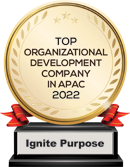
We know that in High Performance Cultures the opportunity for growth will never end. Our leaders are innovative and forward thinking and will challenge us to do the same. The culture that grows in High Performance is one of the willingness to take a risk, do something that is uncertain and to possibly fail. It’s not winning or losing it’s having the willingness to be seen when we don’t have control over the outcome. It’s the balance between people and performance goals and it’s the ability for us to find our way together. Its core foundation is the willingness to be vulnerable. It’s the openness to acknowledge that people matter.
Theodore Roosevelt had a famous speech about “the man in the arena”. When we join a High-Performance team or organisation we need to know that we will be required to be a player in the “arena”.
I can’t think of a more vulnerable place to be where I will try, be seen and possibly fail, yet my failing won’t define me because I will choose to rise again and try again. Through this process I will become a better version of me, lean into new possibilities and make a difference.
“It is not the critic who counts; not the man who points out how the strong man stumbles, or where the doer of deeds could have done them better. The credit belongs to the man who is actually in the arena, whose face is marred by dust and sweat and blood; who strives valiantly; who errs, who comes short again and again, because there is no effort without error and shortcoming; but who does actually strive to do the deeds; who knows great enthusiasms, the great devotions; who spends himself in a worthy cause; who at the best knows in the end the triumph of high achievement, and who at the worst, if he fails, at least fails while daring greatly, so that his place shall never be with those cold and timid souls who neither know victory nor defeat.”
-T Roosevelt-
Playing a role in High Performance means I need to adopt a few key strategies to help me be a contributor that achieves outcomes with and through others. Below are 5 Pillars to help you be successful:
1. Courage
To be a player in a High-Performance culture, I will need to have courage. We know that courage means: To do something that frightens me or to have the strength to try…
Courage is my greatest form of vulnerability as it means I will be willing to give my leader a chance, listen to my team, connect with my team. I will ask questions when I am unsure, I will try things and might need to say; “I failed” or celebrate my success. I will need to have the courage to get up again and not let fear or shame disable my ability to connect, evolve and grow. I will focus on joy and gratefulness!
2. Take my armour off
In high performing cultures we work effectively together and give each other the opportunity to be successful. That means we choose to work on who we are personally. We find the courage to take our armour off and to avoid judging others from our perspectives. I know I work on my armour every day… why don’t you reflect on the armour you might have on that creates barriers between you and someone else or you and the team? (ref. Dare to lead)
- Driving perfectionism – fostering fear and failure
- Working from scarcity – no opportunity for Joy and recognition
- Numbing – Not feeling
- Propagating false dichotomy of victim or Viking – crush or be crushed
- Being a knower and being right
- Hiding behind cynicism
- Using criticism as self-protection
- Using Power over others
- Hustling for our worth
- Engaging for compliance and control
- Weaponizing fear and uncertainty
- Rewarding exhaustion as a status symbol and attaching productivity as self-worth
- Tolerating discrimination and “fitting in” as culture
- Collecting Gold Stars
- Avoiding
- Engaging from hurt
Reflecting on the armour you wear will help you understand what you could work on. It’s your choice to take your armour off and to rather work in connection with others versus disconnection and judgment. Judgment breaks connection and will challenge your team to respond with their armour and before we know it, we have WAR!
2. Clarity and feedback are good things
Being clear is being kind. I like that statement. I also believe that we need to come from a generous place when we intend to give feedback or to provide clarity. We need to be plugged into our love for ourselves and others. This means we are curious about what others are saying and we try to understand. We see feedback as our opportunity to grow and we seek feedback from others on what we could do better and have done well. We make sure that we storm in a positive way. That all voices are heard and that we work from a place of inclusion and alignment. Can we come from a place of love? We as humans have the ability to care for and love each other just like we have the ability to be part of a group or live in a community with a shared goal. So yes we do have the ability to come from a place of love.
Feedback and clarity is never ok when it comes from a place of blame and shame, which means coming from fear. When we try and destroy others so that we can feel better. The challenge is we all come from these places at times it’s what make us human. If we do fail, why not say sorry and find a way to work through it and then let it go. Feedback is critical in High Performance teams as it helps us share accountability and grow and deliver on our gaols. Here are a few guidelines to feedback: I know I am ready to give feedback
– Bréne Brown (Dare to lead)
- I am ready to sit next to you rather than across from you
- I am willing to put the problem in from of us rather than between us
- I am ready to listen, ask questions, and accept that I may not fully understand the issue
- I want to acknowledge what you have done well instead of picking apart what your mistakes
- I recognise your strengths and how you can use them to address your challenges
- I can hold you accountable without shame or blame
- I am willing to own my part
- I can genuinely thank you for your efforts rather than criticise you for your failings
- I can talk about how resolving these challenges will lead to your growth and opportunity
- I can model the vulnerability and openness that I expect to see from you
4. Have goals & stretch goals
The key to high performance is to make sure we are working toward a goal or objective. These need to be ones that allow us to focus and harness our strengths and talents. We should also consider setting stretch goals for ourselves. Something that will challenge us to bring as much focus and energy as possibly. We know when we have focus we are able to get involved less in drama (that happens in every workplace) and really focus on the things that matter. I like to think that we can underpin our goals with real purpose. Purpose creates the WHY to the goal and helps fuel us when times get hard. Making sure you use all your talents will allow you to be very successful to achieve the goals. Finally, doing the things that matter will help you stay away from distraction. Distraction is something we as humans do so well. If we are clear on our priorities that will help us deliver our goal’s we are more likely to say no, refocus and ask for help. What are you top 3 Goals for the next 12 months? Do your priorities align to your goals? Are you spending time on the things that will make your boat go faster?
5. Accountability is the x factor
I love accountability and over the last 5 years we have made it our focus to unpack it and understand it better. Accountability is my willingness to see perspective, own my part, solve it and then do it. Accountability is an action and a choice. I can be really scared sometimes to be accountable, because I might fear that it will show me up as not being good enough. I believe that accountability set’s you free and helps you grow. There are a few things we need to be accountable for:
- Our success and the contribution we make in our roles
- The success of the people we serve (customers etc)
- The success of our team that we are part of – being willing to care for each other and own our joint success
- The success of our leader and finally
- The success of our organisation. Accountability is the X factor in playing your role in high performance.
It’s about realising that you cannot control others. The only thing you are in control of
is yourself so in order to get the best outcomes leading who you are is the key. That means owning your part good and bad. It also means not getting stuck in shame while you are doing this. It means the willingness to own, solve and let it go! Our worthiness is not something we negotiate with other people. We need to know that we are worthy of belonging and being part of a team and doing the work we do. The evolution of accountability is the key to freedom yet the greatest work you will do in yourself.
Summary
The five pillars that underpin how you play a part in High Performance are so important to consider. Making sure you spend time reflecting, connecting with a coach or peer, engaging your leader and finding ways to bring your best self is key. Maya Angelo Quote: It’s not what you say that I remember or what you do, it’s how you make me feel that’s what I remember. The power of this quote is that we need to ‘own’ our impact yet we need to ‘own’ our story too. Make sure our fear of relevance and worthiness is not taking away our opportunity to work with others, explore perspectives and own a positive outcome.
High Performance starts with you and ends with a group of inclusive people achieving together. So together is better!



